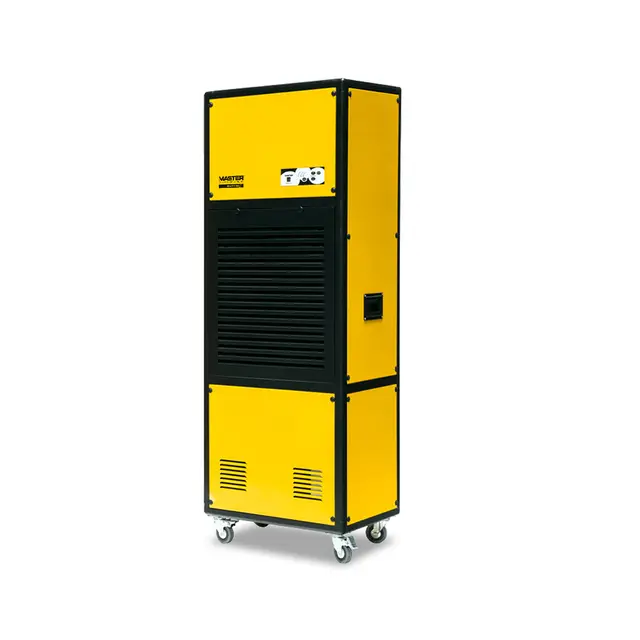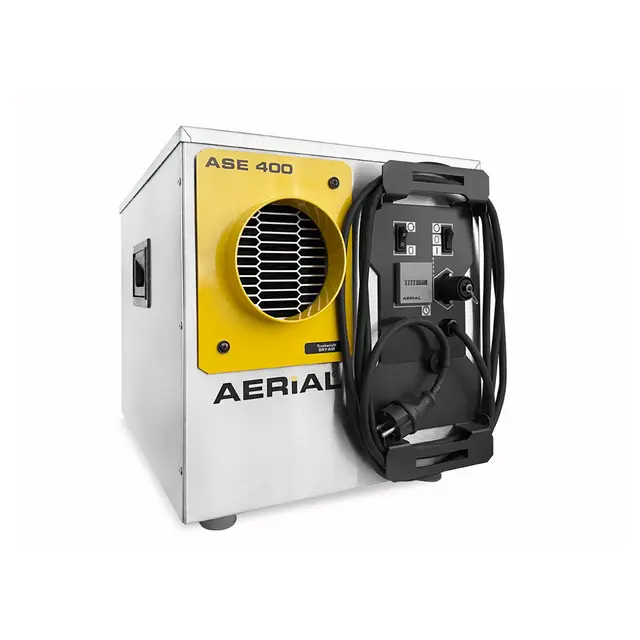Eliminating moisture and humidity problems in food stores and supermarkets
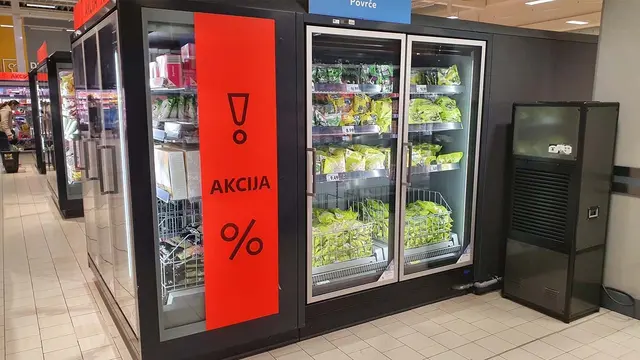
- Home
- Insights
- Humidity control and drying insights
- Eliminating moisture and humidity problems in food stores and supermarkets
To keep shoppers happy, produce fresh and equipment operational, it is important food stores and supermarkets create environments free from excess moisture. In this article, we discuss what steps food retailers can take to keep their facilities clean, dry and comfortable.
Supermarkets are large, busy buildings with lots of foot traffic and numerous areas, each of which requires its own carefully controlled climate to preserve produce for as long as possible.
However, keeping temperature and humidity within designated parameters in each of these local zones can be difficult with a single static dehumidifier.
To exacerbate this issue further, supermarkets are always changing. As people come and go, staff enter and exit the storage facility, and new produce is introduced and removed, both the humidity and temperature inside constantly fluctuate.
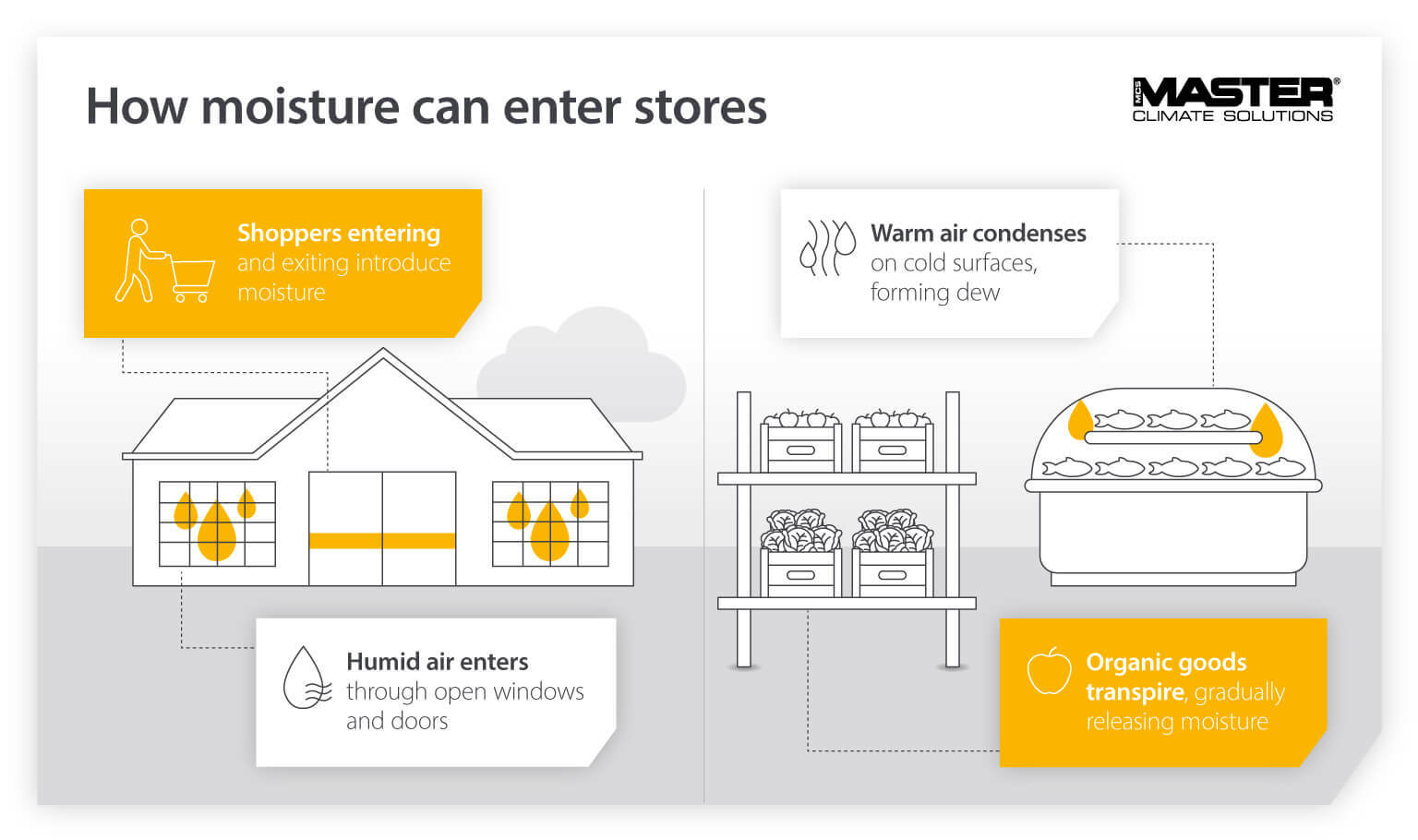
How can excess moisture and humidity impact supermarkets?
The combination of human movement, fresh organic produce, large spaces and the constant opening and closing of doors creates a difficult environment for supermarkets to manage.
However, if a retailer is unable to tackle this challenge with effective temperature and humidity control, it does not just create an unpleasant setting for shoppers and staff, but it can also:
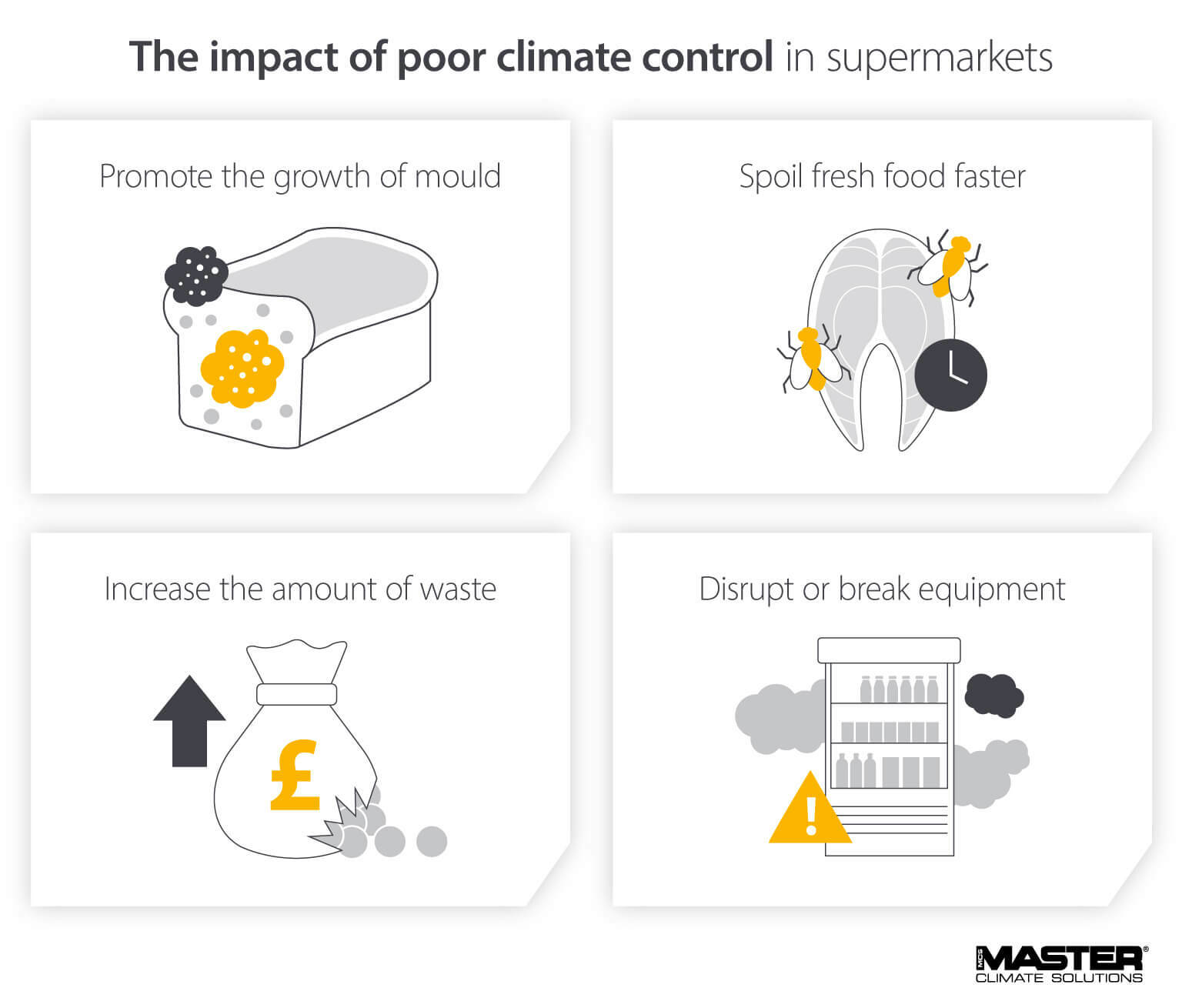
What can you do to reduce humidity and moisture in food stores and shops?
To tackle humid conditions and prevent excess moisture from taking hold, there are a number of techniques and technologies that can be employed in-store.
Limit air flow
One way to reduce indoor humidity inside supermarkets is to limit the flow of air wherever possible. To do this, shops can create an airlock between spaces to prevent different atmospheres from easily mixing. This can preserve organic goods by keeping unwanted moisture out.
Consider layout
Because dew forms when warm air condenses on cool surfaces, such as freezer doors and frozen food, consider reworking the layout of the shop to keep cold surfaces as far away from entrances and exits as possible. In doing so, this can help limit the formation of moisture indoors.
Harnessing a dehumidifier
Lastly, another effective way to limit the humidity level inside food stores and supermarkets is to deploy professional, portable dehumidification systems to problematic areas, such as fresh produce shelves, frozen food aisles and busy doorways.
By harnessing the processes of desiccation or condensation, these systems help capture and remove unwanted moisture from the air and prevent humidity from increasing.
The benefits of using dehumidifiers
By harnessing the right combination of commercial dehumidifiers to eliminate water vapour in the air, supermarkets and food stores can:
Improve food quality
During the hot and humid summer months, fresh meat, fruit and vegetables can spoil in just a few days. By harnessing the dehumidification process in-store, food moisture and humidity can be kept at an optimal level, allowing fresh goods to retain their quality for longer.
By taking steps to preserve stock, supermarket overheads can be reduced. When goods last longer, less is wasted, meaning a single order can generate a greater return for the business. Additionally, as fewer orders are required, less can be spent on ordering stock.
Enhance worker health and safety
As humidity levels fluctuate inside busy supermarkets, moisture and other bacteria can settle onto food, promote the growth of mould and become a health hazard. An effective dehumidification system can mitigate the build-up of large amounts of moisture and keep food safe from contamination.
A healthier environment does not only protect employees from illness, it can reduce the likelihood that shoppers purchase tarnished produce and shop elsewhere, meaning customers are retained for longer.
Preserve equipment for longer
Refrigerated cases and freezers placed in moisture-rich areas can form a great deal of frost and damage certain components. By using an appropriate solution to create dehumidified air, the lifecycle of equipment can be extended.
Fridges, freezers and other essential supermarket equipment can be costly to replace. By creating a dry environment where this technology can operate without stress, less money can be spent on replacing these units.
What types of dehumidifiers can be used in supermarkets?
While the end result of dehumidification is the same – dry, clean air – two primary types of devices can be used to achieve this goal, both of which operate in different ways for different scenarios.
Condensation dehumidifiers
Condensation dehumidifiers work by cooling the air with an integral refrigeration system. This condenses water vapour into droplets and allows moisture to be drained away, in turn producing a flow of dry air.
Because these systems harness refrigeration, they are often better suited to warmer environments with lots of air movement and fluctuations in conditions. For this reason, they are often placed near busy doors and entryways.
Adsorption dehumidifiers
Adsorption or desiccant dehumidifiers, on the other hand, harness adsorbent materials to extract water from the air. Once this moisture is trapped within these materials, it is then drained away, reducing the amount of water vapour present indoors.
Desiccant dehumidification does not rely on temperature to form dew, and as such, is often better suited to cooler closed-off areas, such as food stores and refrigerators.
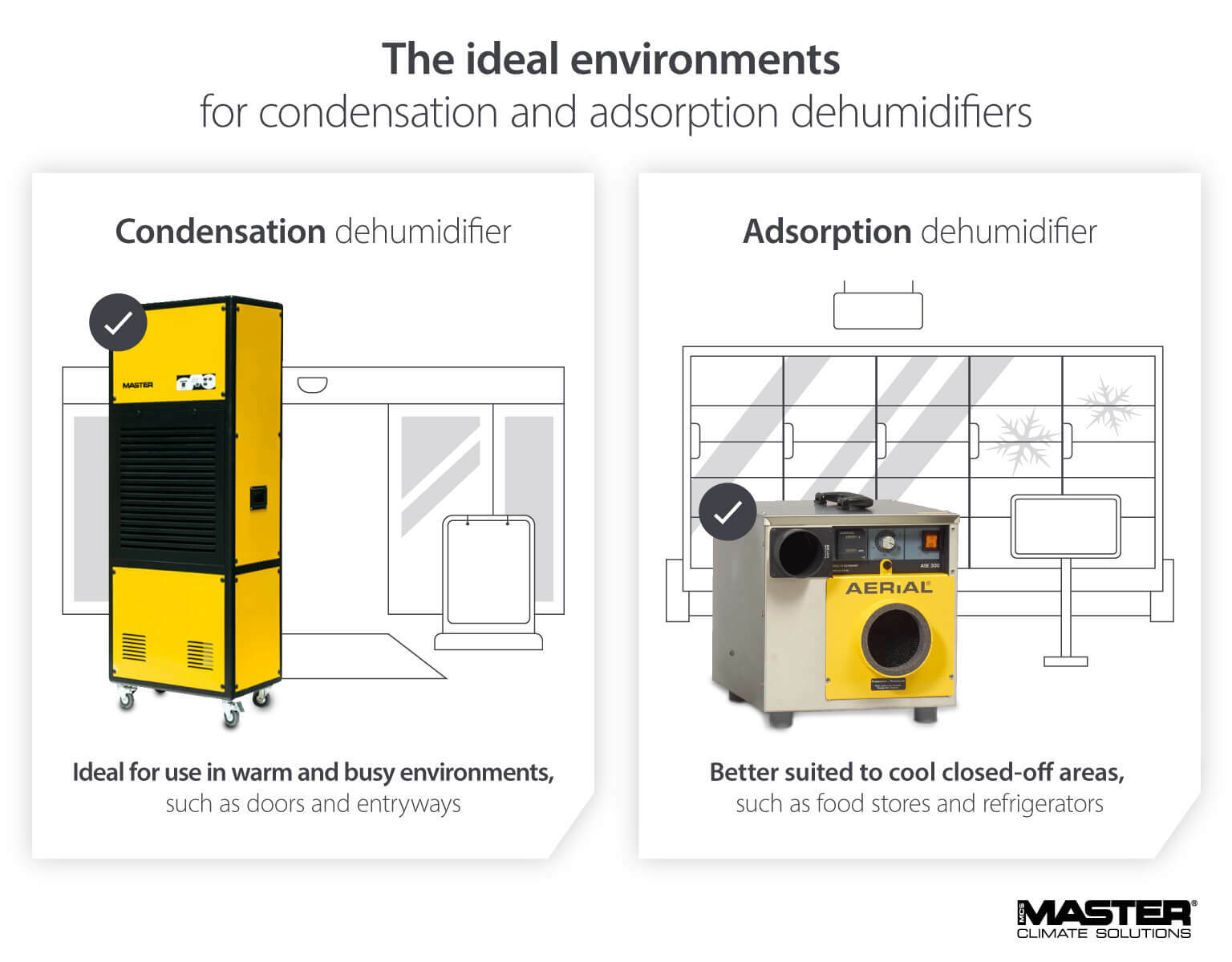
Explore the full spectrum of differences between condensation and adsorption dehumidifiers in this article.
How to choose the ideal dehumidifier for your scenario
Because both types of units operate in different ways, it is often best practice to utilise each device in strategic positions throughout a space to create the optimal environment.
However, because every store is unique, most will require a bespoke combination of technologies to reach and maintain ideal conditions. That is why it is important to enlist the help of climate control experts, like Master, to deliver an efficient, effective and resilient solution.
Why clients trust Master for air drying
It is not just Master’s 70+ years of experience and our quality lineup of machines that keep clients coming back time and again – it is the professionalism, flexibility and quality of our service.
In a recent example, Master was approached by a Croatian supermarket to help them eliminate unwanted moisture on their premises.
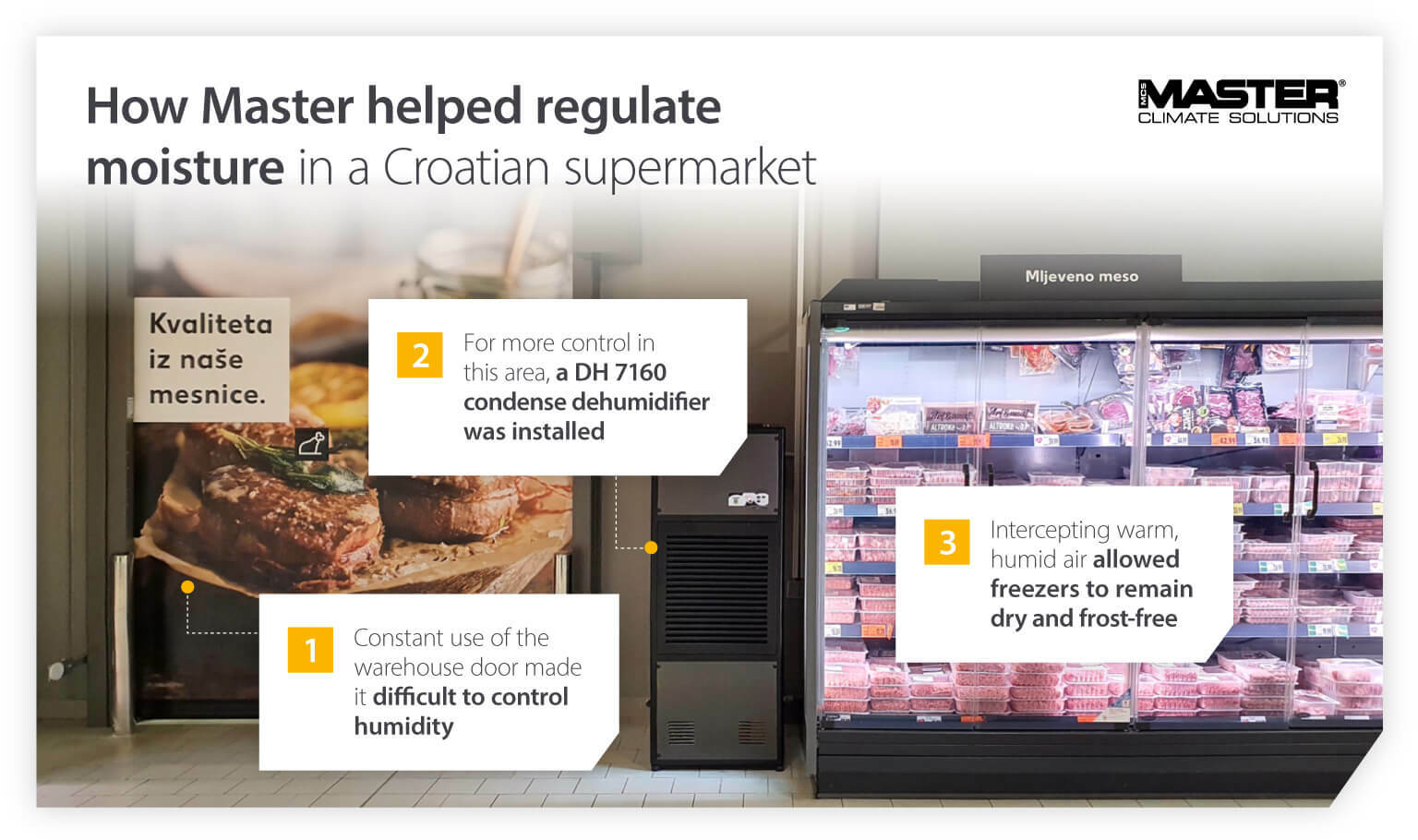
After carefully considering the needs of the client and the layout of their space, we opted for three DH 7160 condensation dehumidifiers and positioned them in strategic locations near a warehouse door.
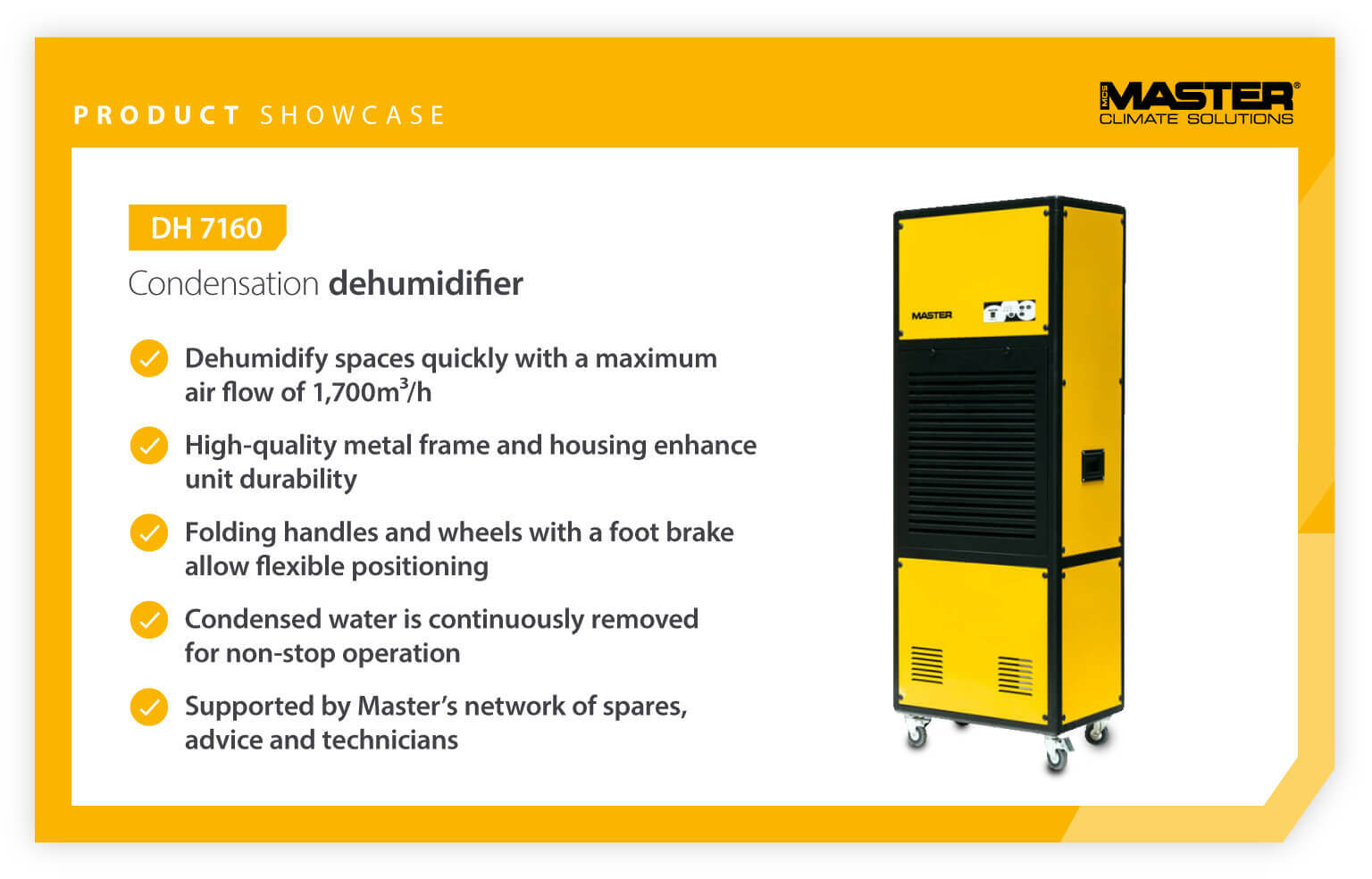
To accommodate the precise needs of the client, the unit not only had to keep humidity within certain parameters, but it had to suit the space it was in. To do this we painted the units a custom colour and installed non-tamper plastic covers over the control panels.
Since installation, the units have worked to create a drier and more comfortable atmosphere which has helped the retailer preserve the quality and safety of their perishables for longer.
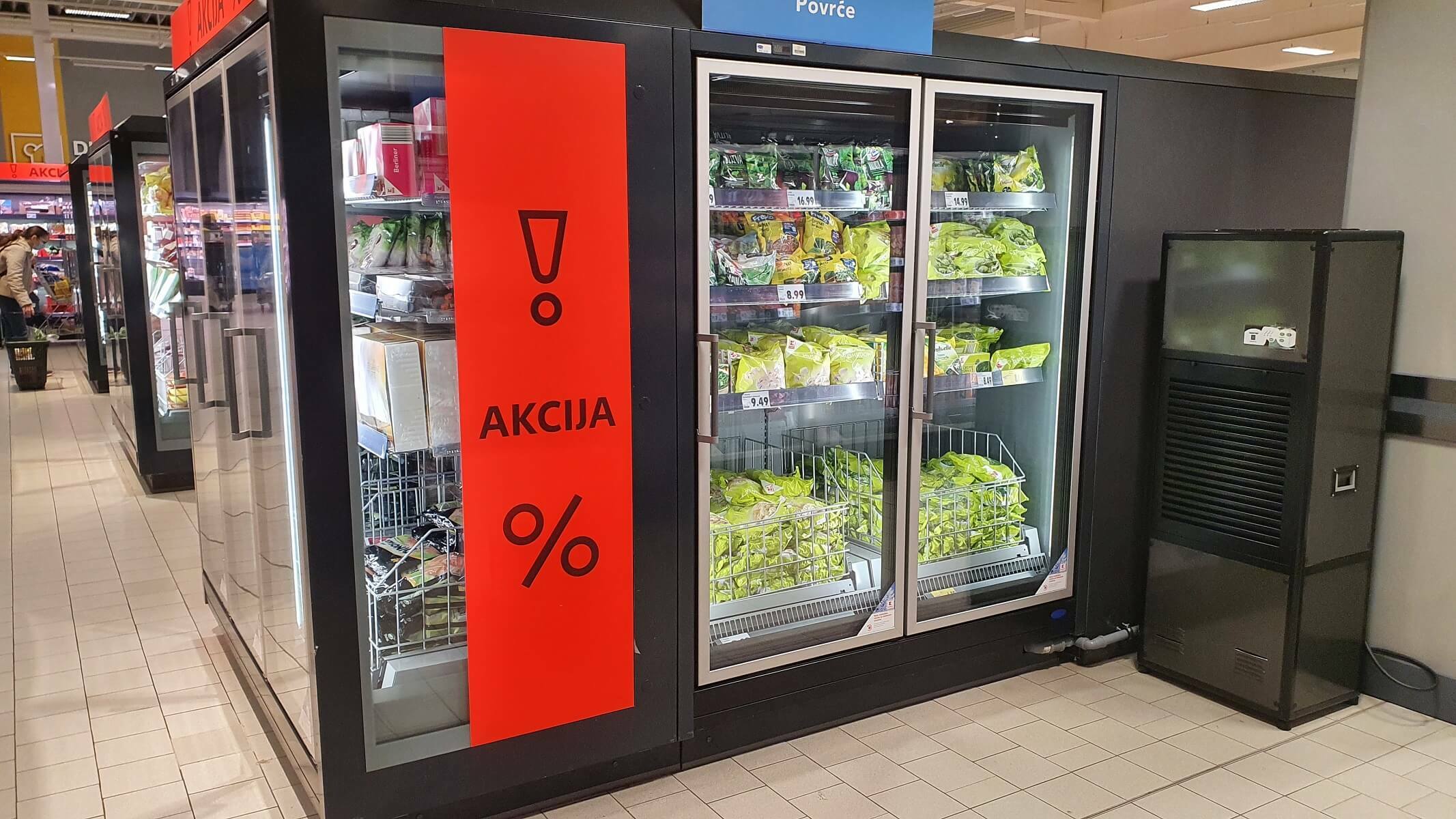
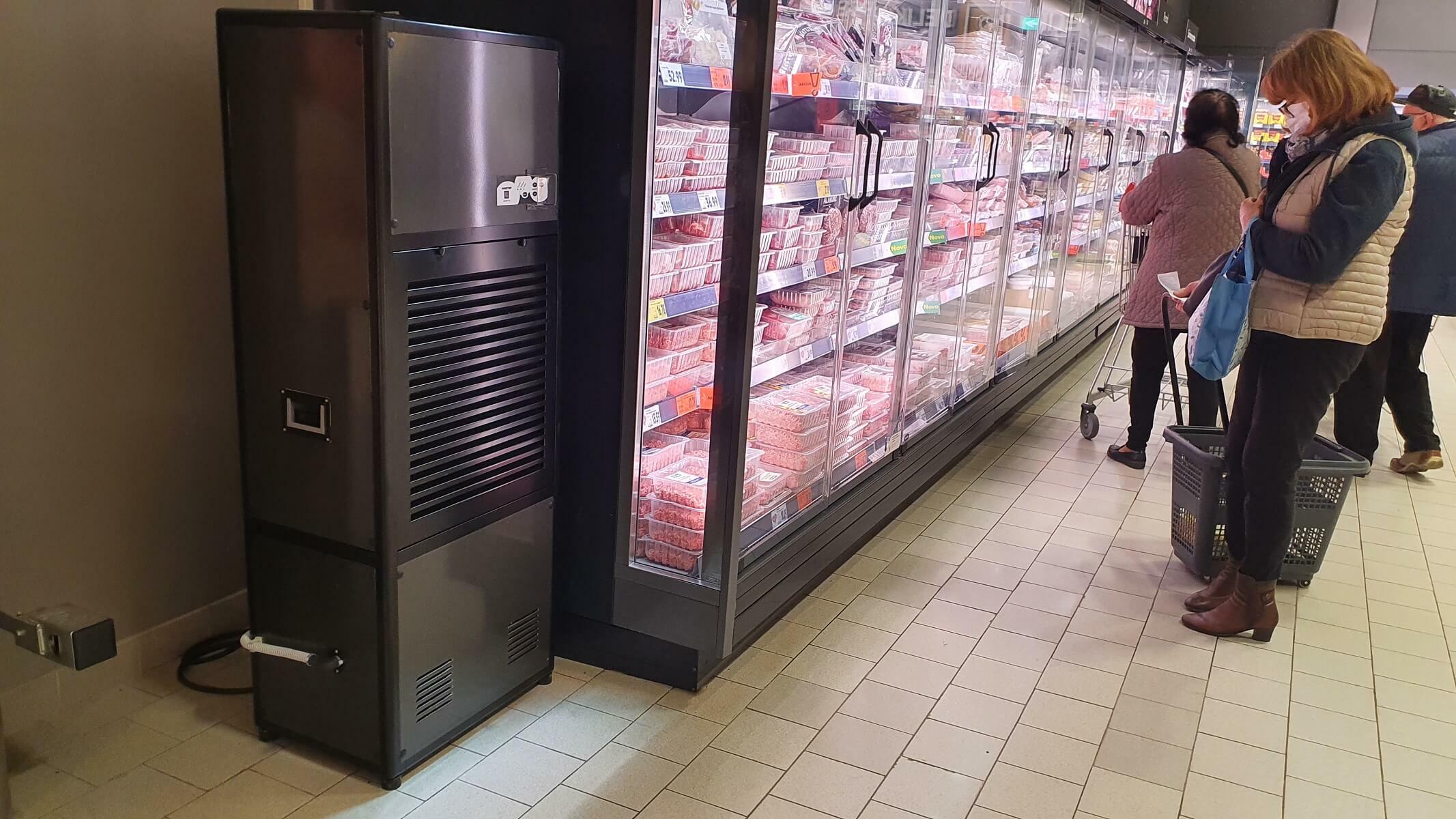
As well as our high-quality units, our Croatian client is also enjoying:
A three-year limited warranty on all supplied Master units
Our exceptional support network of spares, knowledge and technicians
Greater reliability, sustainability, efficiency and usability provided by our technology
At the same time, our Croatian Master importer, Hrgic, continues to deliver our quality units to clients throughout the country.
If you would like to learn more about our supermarket humidity control and food drying solutions and our full lineup of units, get in touch today or use the form below.
Related products
Featured insights
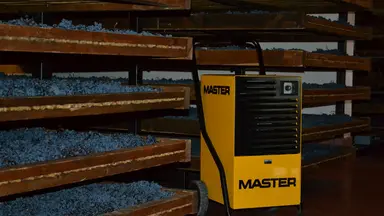
Using dehumidifiers to age world-leading wines
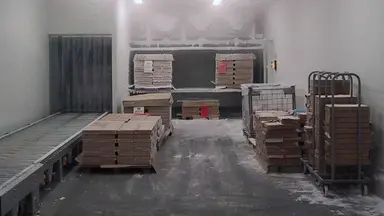
Explore the benefits that can be unlocked by installing dehumidifiers outside of a cold store or freezer room.

Learn how effective climate control solutions can support the need for sustainability in the food industry.
Need help with choosing the right solution? Our team of over 100 climate control experts can assist.
You can also reach out or join the discussion on our Social Media. Check out our LinkedIn page.
